A whole day of our Frankfurt Spring School programme is dedicated to a series of lectures from internationally renowned Professors of Biological Sciences at Goethe University, Frankfurt. Many of our Frankfurt Spring School students are very familiar with the processes of science, but this experience provides some time to reflect on the connections between active scientific research and conservation strategy.
It is doubtless that the world-leading research presented today has great implications for conservation strategy and management, however, it is an all too common observation that the worlds of academia and practical conservation do not overlap as often as they perhaps should.
Why is this? Is it simply a lack of interest and clear communication between the professionals of their respective fields, or is the issue a tad more complex?
To better understand the problem, we asked those that have operated across the blurred lines between these two professions.
A participant of Frankfurt Spring School 2018, Dr Claudia Hermes of the University of Freiburg, provided us with her thoughts:
“In academic research, so much knowledge about threatened species and ecosystems is generated, but it meets a dead end in scientific journals and never makes it out of the ivory tower. Yet these scientific results yield so much information that can be crucial for the conservation of species and ecosystems. However, in order to translate scientific results into a conservation project, scientists would have to engage with conservation practitioners. But here the problem arises. There are just not many meeting points between science and conservation.
So far, I have always been willing to blame the scientific world for this gap. Conservation projects do not provide great scientific merits – mostly, their output cannot be published in high-ranked journals. However, more and more I get the impression that the scientists are alone not responsible, and that conservationists also contribute to the gap by not wanting to engage with scientists.
I did a PhD thesis in conservation biology, where I investigated the responses of endemic species in Ecuador to climate and land-use change. Especially, I focused on a little bird called El Oro Tapaculo, which is now on the brink of extinction due to habitat loss. From my results, I could derive detailed conservation recommendations. But now what? Just knowing how the El Oro Tapaculo might be saved per se does not change its fate: They might go extinct soon if the recommendations are not put into practice. And this is just one example; the same applies for many other young researchers and their study species.
Due to my doctoral studies, I am often being branded as overqualified by conservation practitioners. I came to Frankfurt to learn some of their methods, because I hope that this might help bridging the gap. Let’s not just stand there and watch the El Oro Tapaculo and so many other species being driven to extinction, just because scientists and conservationists do not reach an agreement. In my opinion, the biodiversity crisis we are facing now does not allow for disputes over competences or information. Joining forces can make a change.”
Professor Thomas Mueller of the Senckenberg Biodiversity and Climate Research Institute (BiK-F), and Goethe University Frankfurt, has carried out decades of research on the movement of migratory animals in the Mongolian Steppe and the effect of human development on this ecosystem. His research has great ramifications for further scientific study and applied conservation.
He told us that: “It first needs to be stated that this is not an omnipresent issue, a lot of NGO’s do great research. A good example are the Mongolian institutions leading the push for conservation of the Eastern steppe ecosystem, which take their direction from employees holding doctorates attained at prestigious international universities. However, there are indeed underlying problems and these are in-part communication based. What the conservation community needs is not necessarily what scientists do. Scientists go into a project area, collect their data, and take it with them. While the vast majority of scientists are sympathetic to the outcome of conservation efforts, ultimately there is no primary benefit for them to engage with conservation, as the currency of a scientist is the publication of academic papers. In the conservation community, the feeling is that more direct action is required to tackle conservation challenges, an end that the study-focussed research will not achieve.
What’s needed are essential researchers – field ecologists – to become more embedded within the conservation community. NGO’s should consider employing scientists to carry out the research required for the success of conservation progress, while allowing them the freedom to publish academic papers. This would cover some ground in satisfying the overall ambitions of the NGO and personal career goals of their academic employees.
From a scientific perspective, you do not become a professor because your research impacts conservation, you need a successful career of high-impact scientific study. Perhaps such research can shift to become more conservation orientated. Already, there are good incentives from national German funders for research to be inter-disciplinary. To attain funding, you need the involvement of alternative conservation stakeholders.
Overall, the issue is not the end of the world, but between scientists and conservationists, more appreciation for each other is required.”
Professor Meike Piepenbring, an expert mycologist of the Institute of Ecology, Evolution and Diversity, Goethe University Frankfurt, added her input:
“During the 1992 Convention on Biological Diversity in Rio de Janeiro, fungi were not mentioned once, and as a result were branded “the orphans of Rio”. Fungi, plants, and other lesser known organisms form the basis of ecosystems, and are well studied by academics, but are often ignored in conservation efforts. Of course, conservation requires funding, and “exciting” animals are what generate funding. We therefore need public engagement regarding lesser known forms of life, and subsequent stakeholder involvement to make a difference in the short term. In the long-term, conservationists aware of these issues are what will solve the problem.”
Despite these challenges, the future looks bright.
Evidence that academics and conservationists are actively collaborating in the world is not too hard to find.
Efforts to conserve the critically endangered Saiga antelope are built from a continuous channel of discussion between NGO’s and a number of international research institutions and universities. As we saw today, the work of Professor Georg Zizka and his team, on the habitat mapping of Frankfurt, is essential in driving conservation of the surprisingly diverse city wildlife.
To top it off, our Frankfurt Spring School students are taking the knowledge of these challenges with them into the world of conservation. With them leading the fight, there’s a great chance this gap will seem a lot smaller before long!
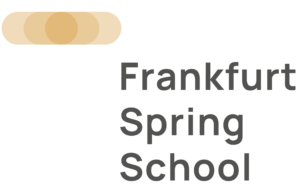
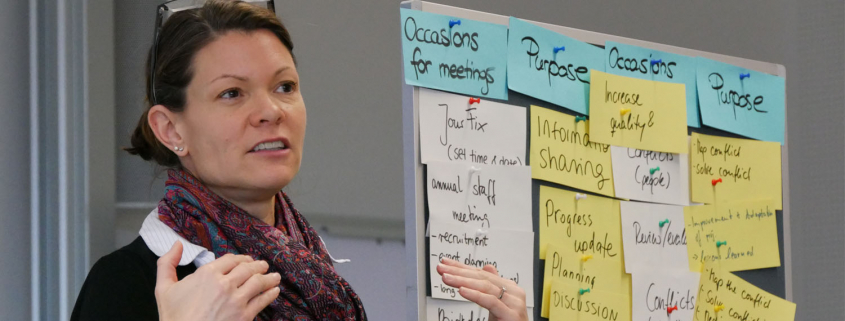





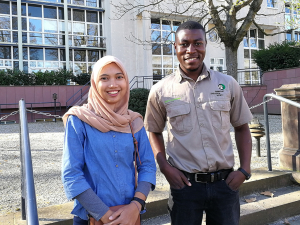
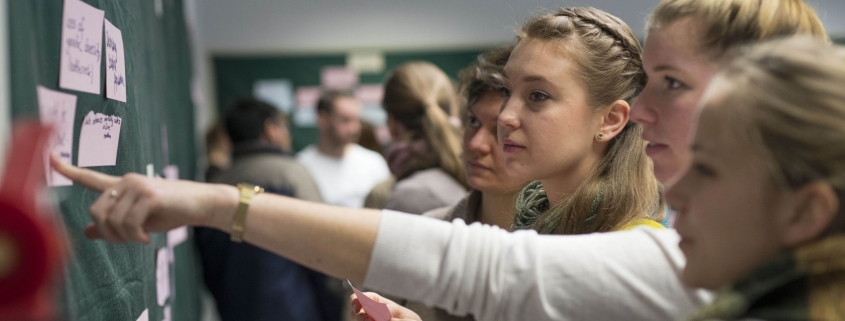 Daniel Rosengren
Daniel Rosengren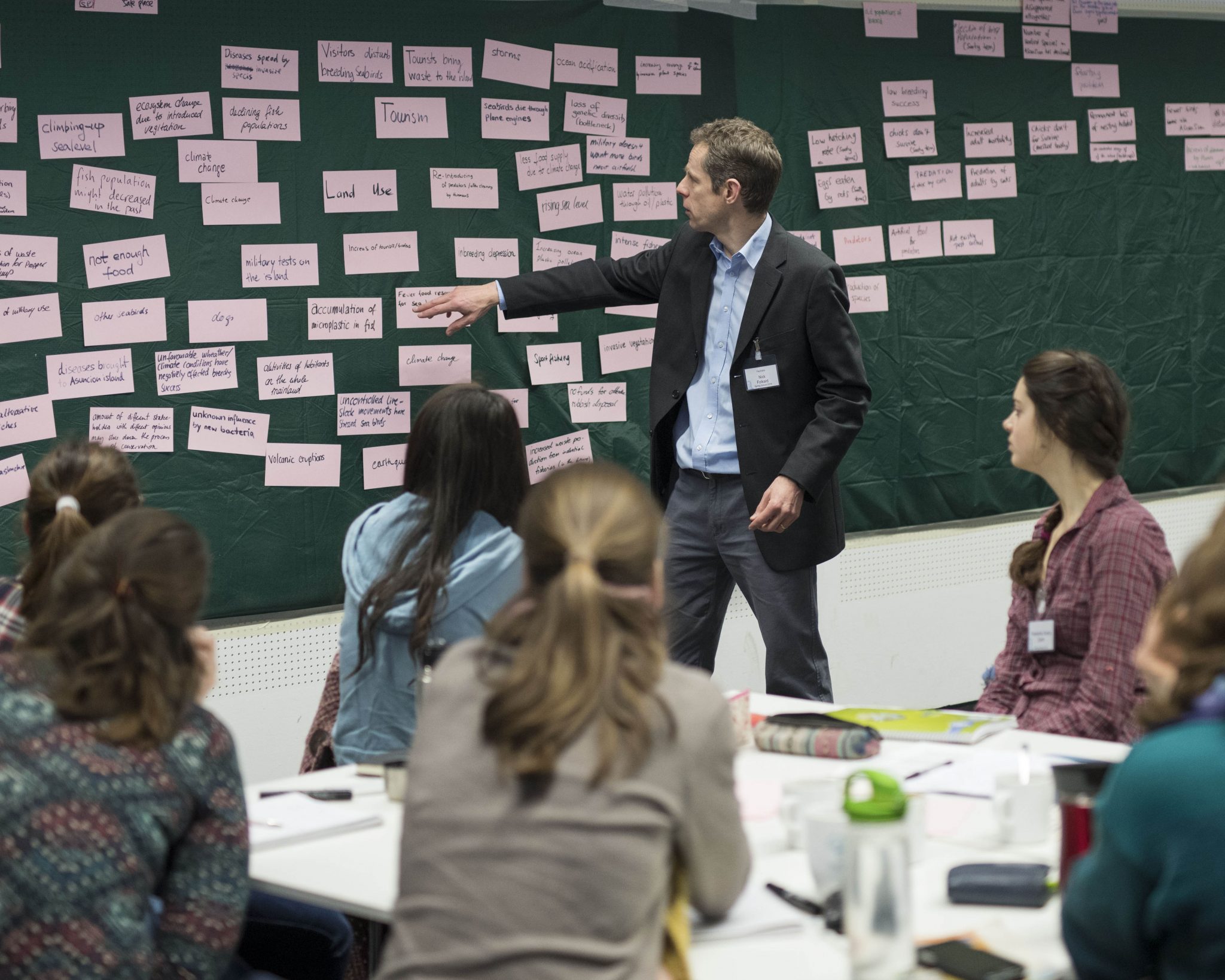
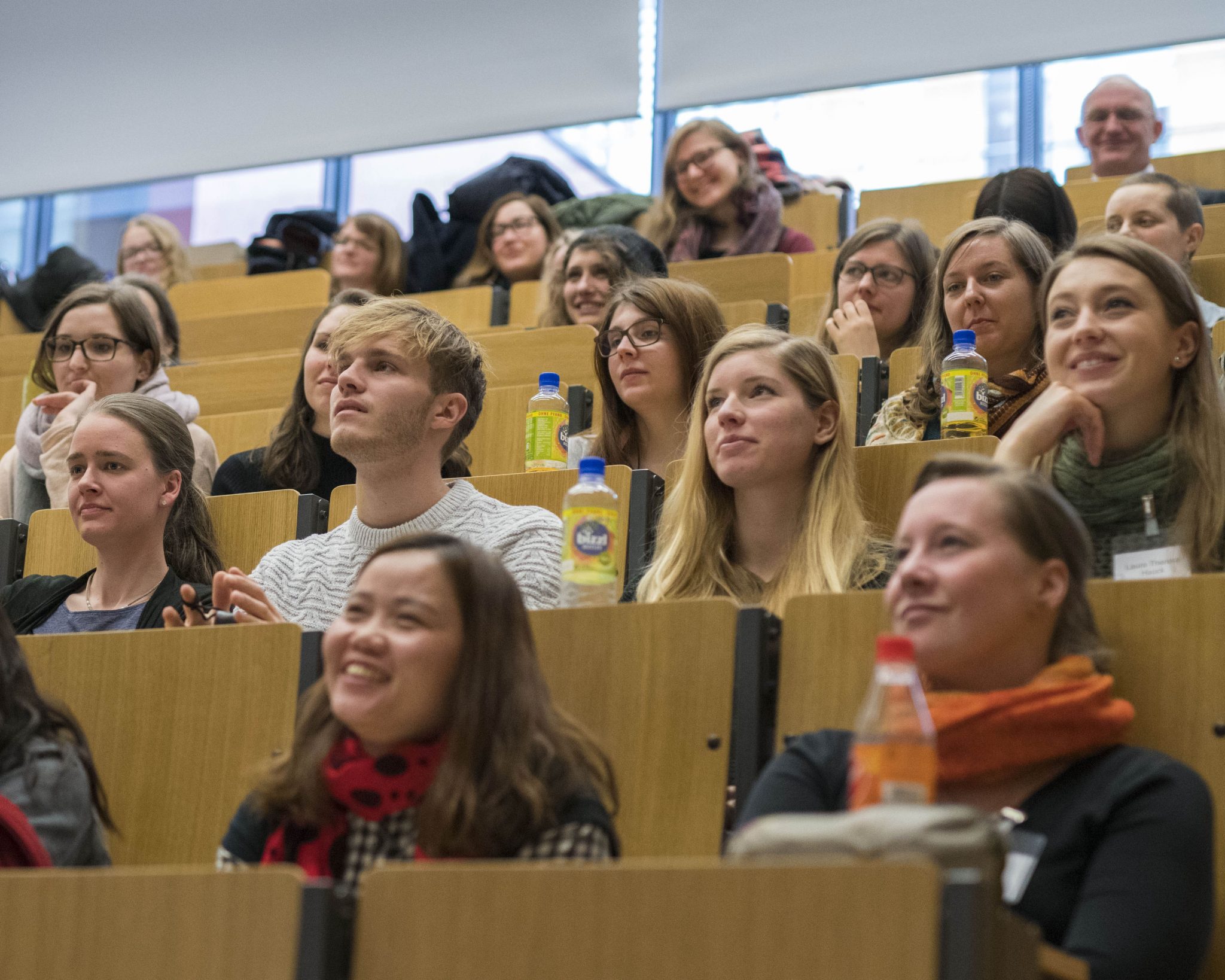
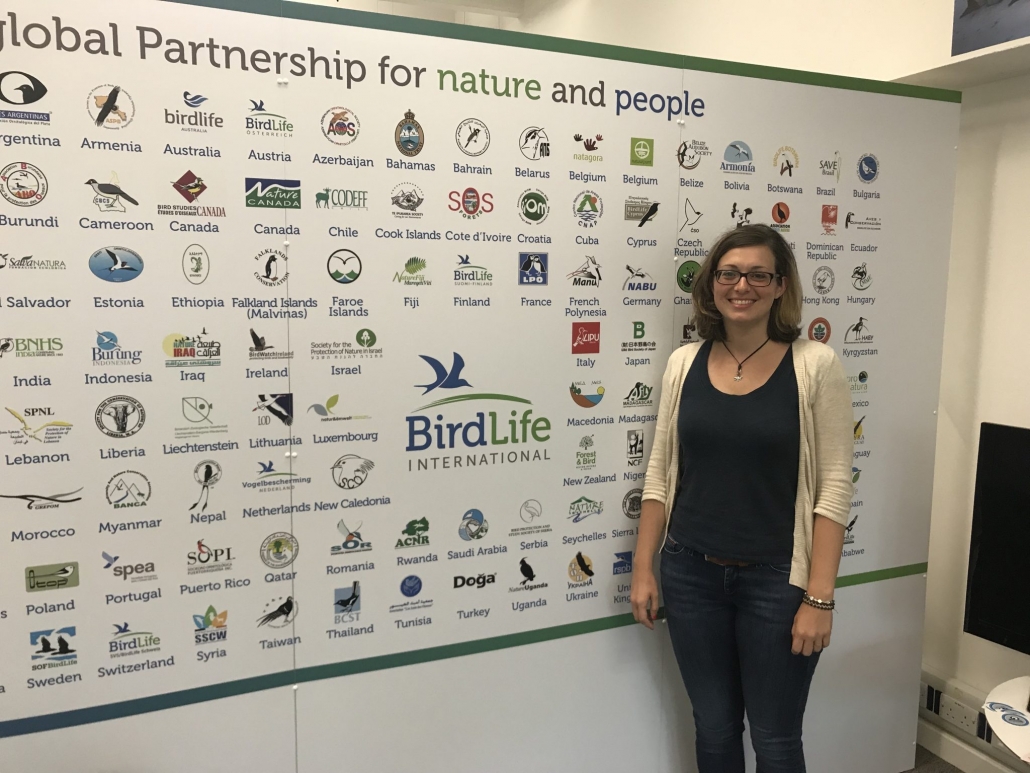
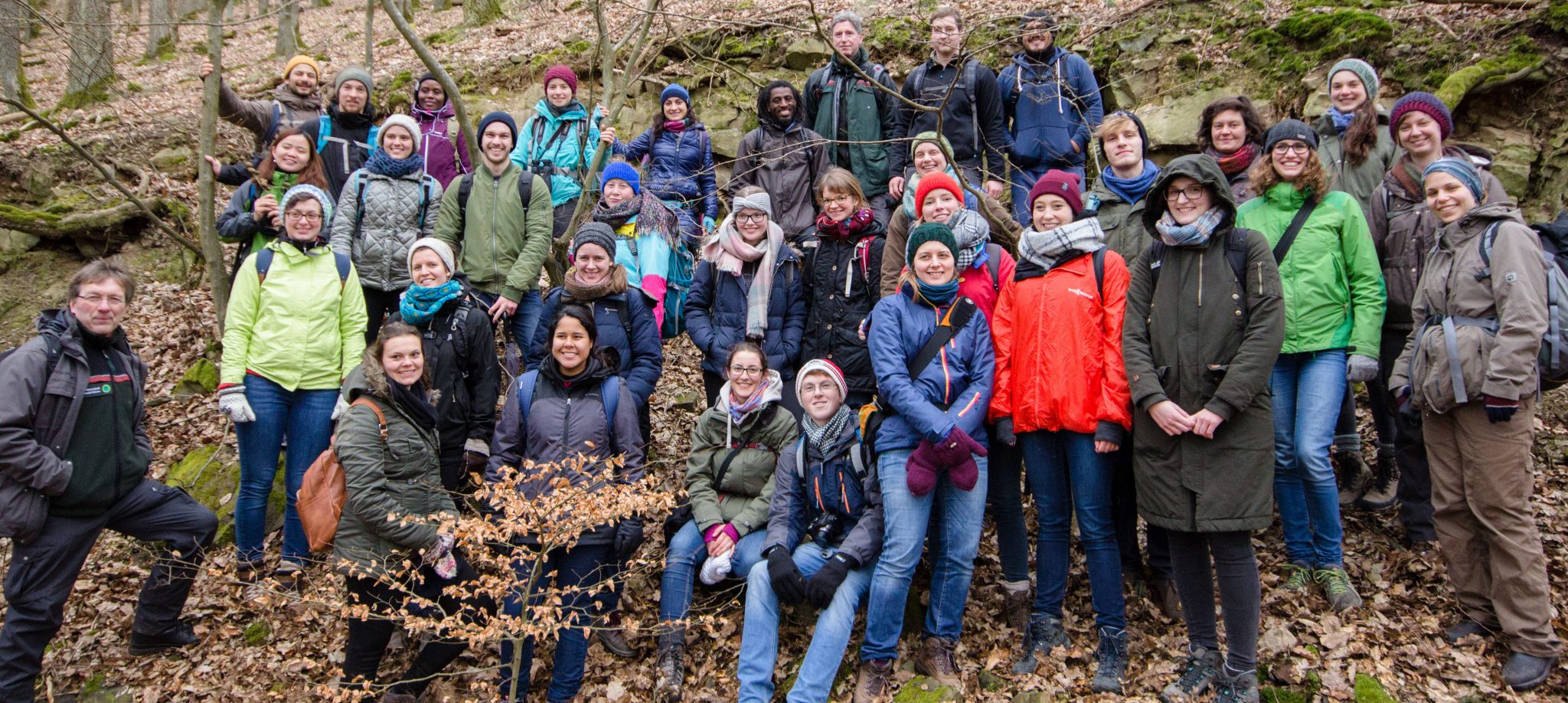
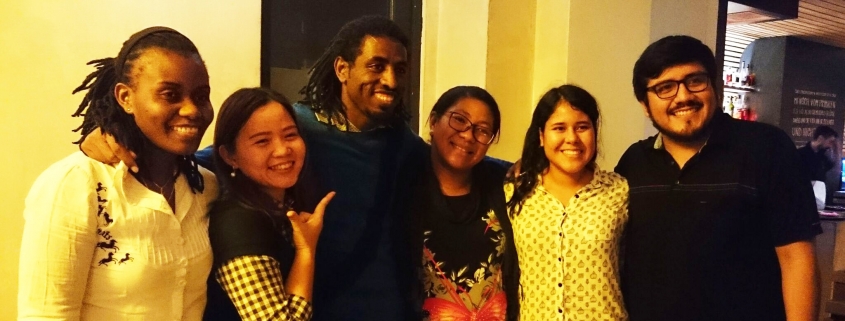
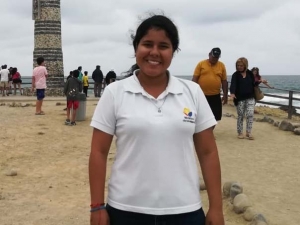
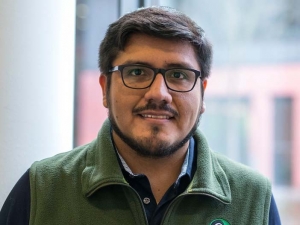
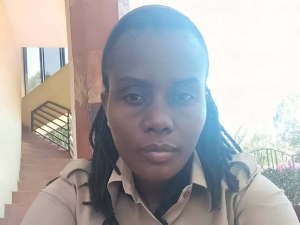
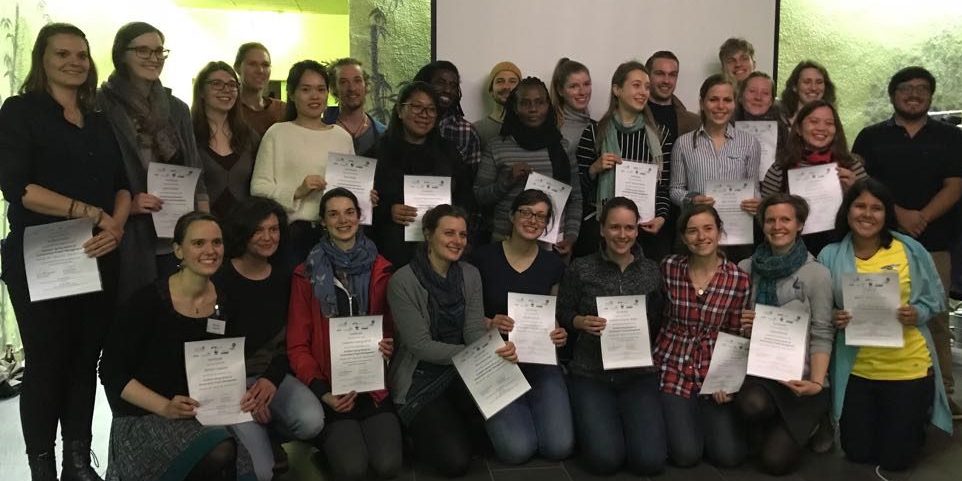 Michael Brombacher
Michael Brombacher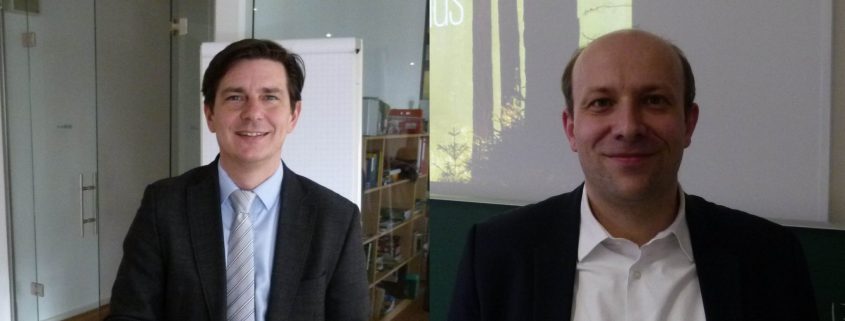 Ben Evans
Ben Evans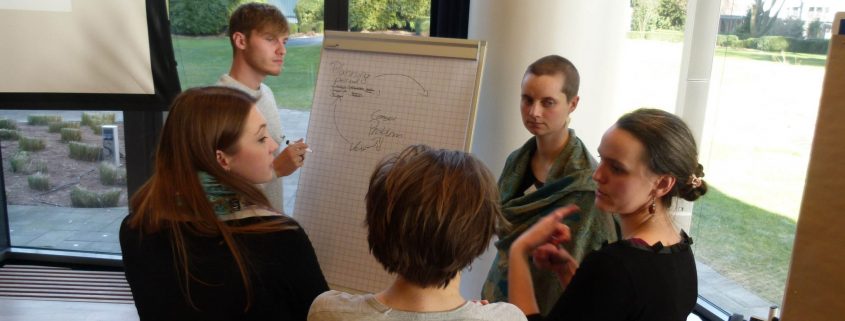 - Ben Evans
- Ben Evans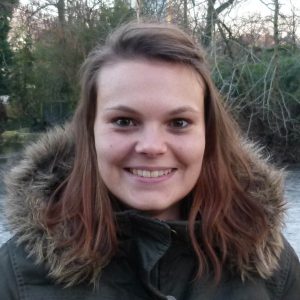 “Well, we came to the end of the second week and the first half of the Spring School has already passed. This week had great diversity of topics compared to the first week. Therefore, it is hard to define one as my favourite as I liked all of them. It was great to learn about a different approach to planning (Open Standard) and to get to know many institutions working in nature conservation like WWF, KfW and Goethe University. I much enjoyed our Wednesday program. I learned more about myself, how I (unconsciously) react and how I should act to people of other personality types. I really appreciate that we have gotten an insight into human resources in a practical way and from both sides: the employer, which is important for the future as a project manager and as an employee, the situation which some of us are facing recently. I was disappointed when I learnt that we could not continue with the topic of soft skills due to Rob Thompson’s unfortunate absence, though the visit of the fungi exhibition in Wiesbaden was a great compensation. I´m looking forward to the next week, especially the excursion to Kellerwald- Edersee National Park, I hope that better weather conditions will finally make it “Spring” School ?”
“Well, we came to the end of the second week and the first half of the Spring School has already passed. This week had great diversity of topics compared to the first week. Therefore, it is hard to define one as my favourite as I liked all of them. It was great to learn about a different approach to planning (Open Standard) and to get to know many institutions working in nature conservation like WWF, KfW and Goethe University. I much enjoyed our Wednesday program. I learned more about myself, how I (unconsciously) react and how I should act to people of other personality types. I really appreciate that we have gotten an insight into human resources in a practical way and from both sides: the employer, which is important for the future as a project manager and as an employee, the situation which some of us are facing recently. I was disappointed when I learnt that we could not continue with the topic of soft skills due to Rob Thompson’s unfortunate absence, though the visit of the fungi exhibition in Wiesbaden was a great compensation. I´m looking forward to the next week, especially the excursion to Kellerwald- Edersee National Park, I hope that better weather conditions will finally make it “Spring” School ?”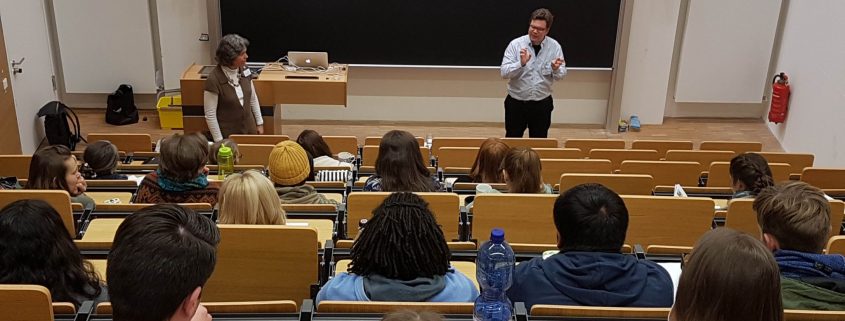 Ben Evans
Ben Evans